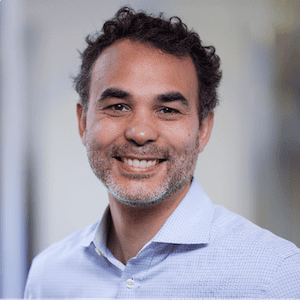-
How India’s Digital Payments Revolution Can Advance its Position as a ‘Soft-Power Superpower’
With cultural exports like Bollywood movies, delicious cuisine and yoga, India is already a soft-power powerhouse, argues Tidhar Wald. But with financial inclusion rising from 35 to 80 percent in just six years, and a biometric ID system that reaches 1 billion people, the country could become a soft-power superpower. Wald explores how India can both inspire and learn from other countries in creating an inclusive digital economy.
- Categories
- Finance
-
Why Coffee Farmers are Poor – And How an Innovative Ownership Model Can Help
Joseph Nkandu grew up on a coffee farm in Uganda and knows firsthand how farmers struggle to earn a living. While agriculture dominates Africa's economy, value chains largely exclude farmers from much of the retail value of their produce - a system that keeps many coffee farmers from generating savings and reinvesting to improve their yields. Nkandu founded the National Union of Coffee Agribusinesses and Farm Enterprises, where he advocates a "farmer ownership model." That model, he writes, is ready to scale.
- Categories
- Agriculture
-
Show Me the Money: How Much Do Accelerators Really Help Entrepreneurs Raise?
Do accelerators really help social entrepreneurs raise more money for their businesses? Studies from the Global Accelerator Learning Initiative suggest the answer is yes, in both emerging markets and high-income countries – but their effectiveness varies greatly. Stephanie Buck of ANDE explores valuable insights from the research that can help optimize accelerators' impact.
- Categories
- Investing, Social Enterprise
-
Sun, Water, Data: How to Truly Grow Africa’s Agricultural Transformation
Technologies such as blockchain, the Internet of Things and machine learning are expected to enable a new era of agricultural prosperity in Africa. But many of Africa’s millions of smallholder farmers experience difficulties because they lack access to quality data. Dr. Gilbert Saggia of SAP East Africa asks how the continent should adopt new technologies across the agricultural value chain to help its farmers meet the demands of a population that is expected to grow by 1.3 billion people by 2050.
- Categories
- Agriculture, Technology
-
Why Focus Groups Aren’t Enough: A Surprising Lesson in Marketing Insurance in Africa
Building a customer-centric company naturally requires engagement with end users. But as digital insurance provider Inclusivity Solutions discovered, sometimes just speaking to customers is not enough. Tyler Tappendorf discusses how the company combined customer feedback with more quantitative data, after focus group input conflicted with real-world results in marketing campaigns in East Africa.
- Categories
- Finance
-
Failing to Scale: Fixing Common Missteps in mHealth Ventures
Telemedicine or mHealth systems have great potential to bolster fragile health care systems in the developing world. However, these programs often fail to survive beyond the pilot phase. A team at the Humanitarian Engineering and Social Entrepreneurship Program at Penn State studied 35 telemedicine and mHealth projects and discovered six recurring reasons for failure to scale. Program director Khanjan Mehta offers solutions to some common missteps.
- Categories
- Health Care, Technology
-
In Pursuit of Universal Health Care: Time to Take Public-Private Partnership to the Next Level
Public-private partnerships (PPP) are receiving increased attention for their promise to broaden developing countries' capacity to achieve universal health care. But though this attention is good, Dr. Naveen Rao of Merck for Mothers says we also need action. He outlines concrete steps that can make PPPs an integral part of national health policies and harness the local private health sector – not just big multilateral organizations, multinational corporations and NGOs.
- Categories
- Finance, Health Care
-
Behavioural Nudges: Mildly Paternalistic or a Threat to Economic Justice for the Poor?
"Nudges” – ie: the use of behavioral science insights to steer human behavior – are increasingly seen as a cheap and effective way to achieve social goals. But according to social researcher Sally Brooks, there are some troubling questions about whether the use of nudges for business purposes is good for the poor. She explores the issue through the prism of digital financial inclusion in the era of fintech and big data.










